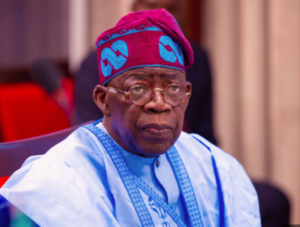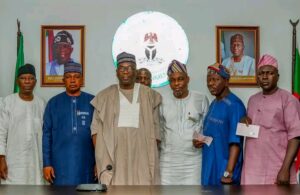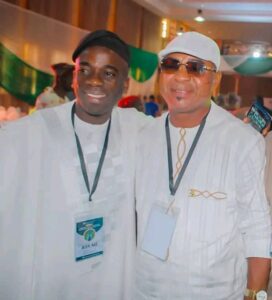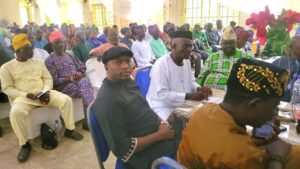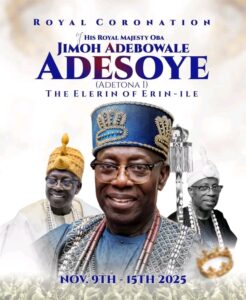
Since February 6, when the House of Representatives confirmed receiving proposals for the creation of 31 new states across Nigeria’s six geopolitical zones as part of the ongoing constitutional review, reactions have poured in from all corners of the country.
Nigerians from diverse backgrounds—including regional groups, professionals, and individuals—have expressed varying opinions on the matter.
If approved, the proposed states would increase Nigeria’s total from 36 to 67. Currently, the South East has the fewest states (five), while the South West, South-South, North Central, and North East each have six. The North West has seven.
In the North Central, requests include:
Benue Ala, Apa Agba, and Apa from Benue State
Okun, Okura, and Confluence from Kogi State
Upgrading the Federal Capital Territory (FCT) to a state
In the North East, proposals include:
Amana, Katagum Savannah, and Muri from Adamawa, Bauchi, Borno, and Taraba States
The North West proposals suggest:
New Kaduna and Gurara from Kaduna State
Tiga and Ghari from Kano State
Kainji from Kebbi State
In the South East, suggested states are:
Etiti (carved from all five states in the region)
Adada (from Enugu)
Orashi, Orlu, and Aba (from Imo and Abia States)
The South-South proposals include:
Ogoja, Warri, and Bori from Cross River, Delta, and Rivers States
Obolo (from Rivers and Akwa Ibom)
In the South West, the proposed states are:
Toru-Ebe (from Delta, Edo, and Ondo States)
Ibadan and Lagoon (from Oyo and Lagos)
Ijebu (from Ogun)
Oke-Ogun and Ife-Ijesha (from Oyo and Osun)
The House Committee on Constitution Review, led by Deputy Speaker Benjamin Kalu, has instructed proponents of new states to re-submit their requests in accordance with Section 8(1) of the 1999 Constitution.
“The committee will only consider proposals that meet constitutional requirements,” Kalu stated.
Some Nigerians believe the focus should be on restructuring the country rather than creating more states. They argue that Nigeria was more efficiently governed under a regional system and that previous state creations were politically motivated rather than developmental.
The Yoruba socio-political group Afenifere and the Arewa Consultative Forum (ACF) have strongly opposed the move. Afenifere’s National Organizing Secretary, Abagun Kole Omololu, described it as “political theater” that would further burden the economy, given that most existing states struggle to generate revenue and rely heavily on federal allocations.
He added, “Instead of creating more states, the National Assembly should focus on true federalism, resource control, and state autonomy.”
Similarly, ACF dismissed the idea as unnecessary, questioning how new states would sustain themselves.
The Igbo socio-cultural group Ohanaeze Ndigbo Worldwide supports the idea but insists that the South East deserves more states to correct historical imbalances. National Publicity Secretary Ezechi Chukwu criticized the proposal for allocating only one new state to the South East while other zones, which already have more states, get additional ones.
Pan-Niger Delta Forum (PANDEF) argued that if new states are to be created, they should be equally distributed across all zones, ensuring that every region has seven states, like the North West. However, its spokesman, Christopher Ominimini, cautioned against creating states that lack economic viability.
Senior Advocate of Nigeria Mike Ozekhome dismissed the proposal as a wasteful distraction, arguing that most of Nigeria’s 36 states are already financially unviable. He criticized lawmakers for focusing on state creation instead of addressing pressing national issues like poverty and insecurity.
Similarly, lawyer and social commentator C.I. Nnamani noted that Nigerians are more concerned about economic survival than the number of states. He accused politicians of pushing for state creation to maintain relevance rather than to benefit citizens.
However, former Voice of Nigeria Director-General Osita Okechukwu sees the move as a positive step for national unity. He pointed out that state creation has been a recurring demand in Nigeria’s history and argued that it reflects citizens’ desire for equitable governance.
Social Media Reactions
Online, opinions are sharply divided.
Najeeb Bello sarcastically suggested, “Why not 311 states? Let every local government become a state.”
Bashir Ahmad supports more states but believes Kano, with its large population, should be split into at least five states.
Rays, another commentator, dismissed the proposal as a ploy for more political positions and financial benefits for politicians.
Despite the debate, the stringent constitutional requirements for state creation remain a significant hurdle. Proposals must pass a two-thirds majority vote in the Senate, House of Representatives, and State Houses of Assembly—a challenging process.
For many Nigerians, the real question remains: Will more states bring development, or is restructuring the only viable path forward?


